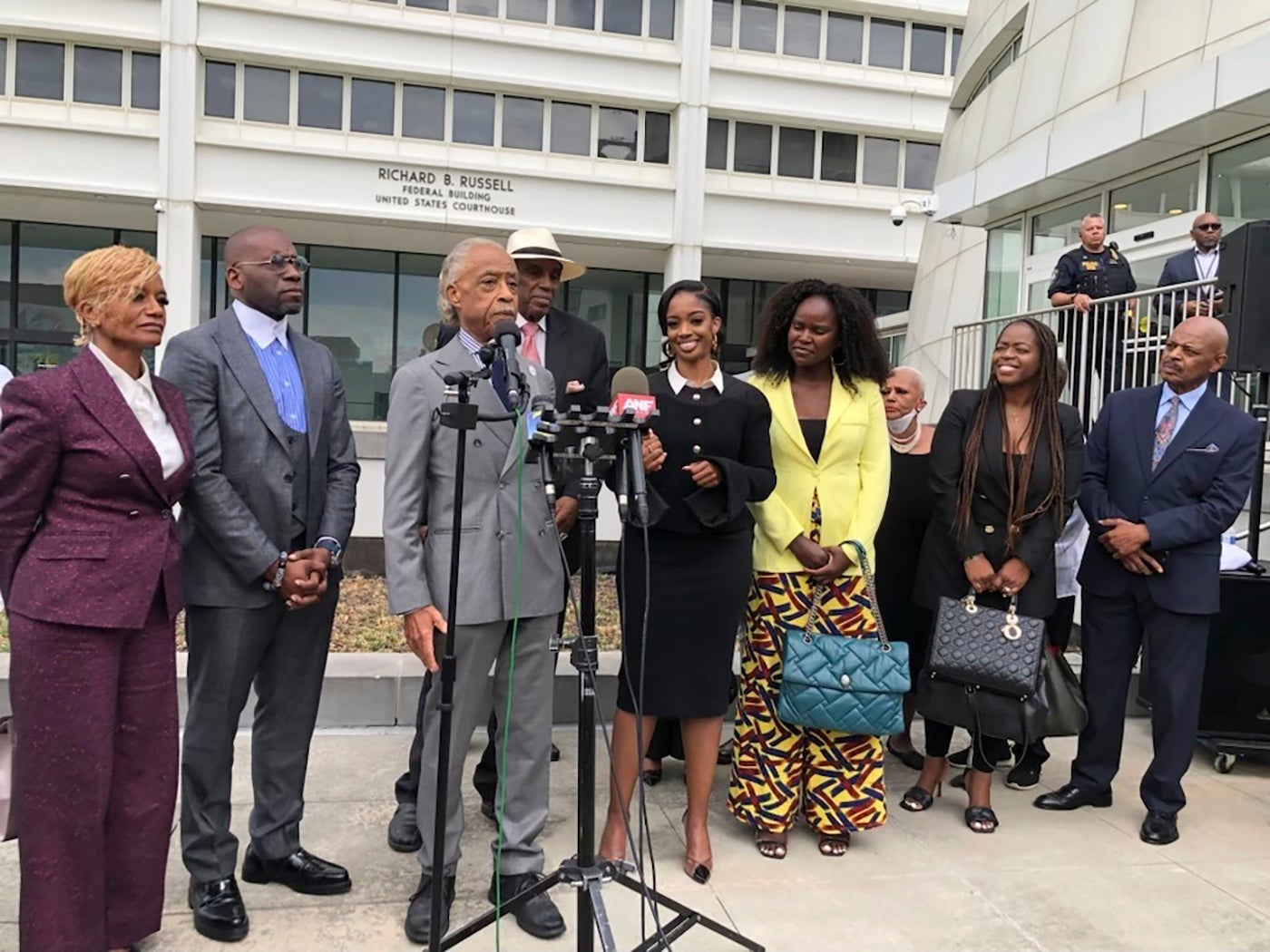Judge refuses to immediately block grant program for Black women entrepreneurs
A federal judge in Atlanta is allowing a venture capital firm to continue offering a grant program only to Black women entrepreneurs

Your support helps us to tell the story
From reproductive rights to climate change to Big Tech, The Independent is on the ground when the story is developing. Whether it's investigating the financials of Elon Musk's pro-Trump PAC or producing our latest documentary, 'The A Word', which shines a light on the American women fighting for reproductive rights, we know how important it is to parse out the facts from the messaging.
At such a critical moment in US history, we need reporters on the ground. Your donation allows us to keep sending journalists to speak to both sides of the story.
The Independent is trusted by Americans across the entire political spectrum. And unlike many other quality news outlets, we choose not to lock Americans out of our reporting and analysis with paywalls. We believe quality journalism should be available to everyone, paid for by those who can afford it.
Your support makes all the difference.A federal judge in Atlanta ruled Tuesday that a venture capital firm can continue offering a grant program only to Black women entrepreneurs, saying a lawsuit arguing it illegally excluded other races was not likely to succeed.
Senior U.S. Judge Thomas Thrash denied a preliminary injunction that would have blocked the grants by the Atlanta-based Fearless Fund. The judge issued the decision in court after hearing arguments from attorneys and said he planned to issue a written order by the end of the week.
The Fearless Fund is a tiny player in the approximately $200 billion global venture capital market, but Tuesday's ruling was a significant victory for the firm, which has become symbolic of the fight over corporate diversity policies. The lawsuit against it could be a test case, as the battle over considerations on race shifts to the workplace following the U.S. Supreme Court's June ruling ending affirmative action in college admissions.
The injunction was sought by the American Alliance for Equal Rights, a nonprofit founded by anti-affirmative action activist Edward Blum, the man behind the admissions cases the Supreme Court ruled on in June.
Blum said he plans to appeal the decision.
“Our nation’s civil rights laws do not permit racial distinctions because some groups are overrepresented in various endeavors, while others are under-represented,” he said in a statement.
The fund's founders rallied with the Rev. Al Sharpton outside the courthouse after the decision.
“We will continue to run the nation's first venture capital fund that is built by women of color for women of color,” Fearless Fund CEO and co-founder Arian Simone told a crowd of supporters.
The alliance argues in a lawsuit that the fund’s Fearless Strivers Grant Contest, which awards $20,000 to Black women who run businesses, violates a section of the Civil Rights Act of 1866 prohibiting racial discrimination in contracts. It says it has members who are being excluded from the program because of their race and said it’s entitled to relief.
Thrash said the grants were “charitable donations” intended in part to send the message that Black women business owners have suffered discrimination. Donating money is “expressive conduct” entitled to protection under the First Amendment, the judge said, accusing the alliance of wanting the fund to communicate a different message.
“That's not the way it works,” the judge said.
An attorney for the alliance, Gilbert Dickey, noted the grant program was not open to other racial minorities, including Hispanics. Promoting one race over others is not protected by the First Amendment, he said.
“This case is about whether they can exclude everyone else solely on the basis of race,” he said.
The venture capital firm was established to address barriers that exist in venture capital funding for businesses led by women of color. Less than 1% of venture capital funding goes to businesses owned by Black and Hispanic women, according to the nonprofit advocacy group digitalundivided.
The Fearless Fund runs the grant contest four times a year. To be eligible, a business must be at least 51% owned by a Black woman, among other qualifications.
An attorney for the fund, Mylan Denerstein, said the section of the 1866 Civil Rights Act that the plaintiffs were citing was intended to ensure that Black people who were formerly enslaved would have the same rights as whites to enforce contracts after the Civil War.
“The plaintiff is attempting to turn this seminal civil rights law on its head,” she said.